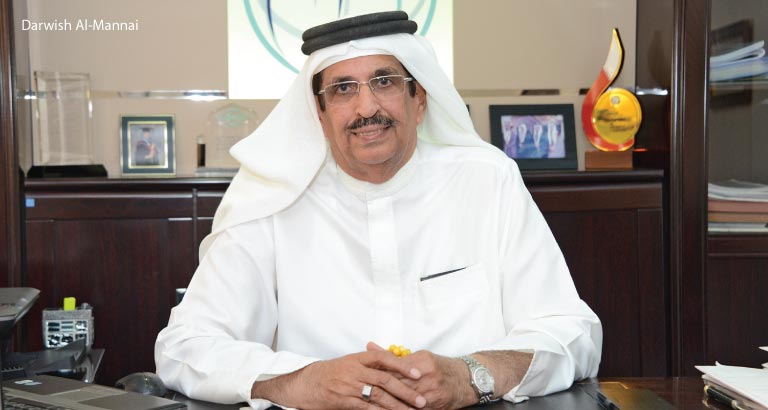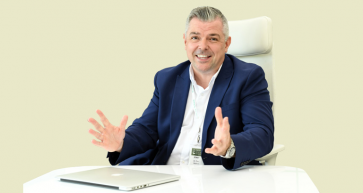
Shura council member and prominent businessman, Darwish Al-Mannai, sheds light on Bahrain’s changing economic situation.
As the economic climate continues to evolve, the country is looking to its industry leaders to pave the way for a brighter and more successful future. With a number of business activities in various sectors, Darwish Al-Mannai, general director of Mannai Trading & Investment, has been spearheading economic development in the Kingdom for several decades.
Although he admits the worldwide slowdown in oil prices has presented Bahrain with certain challenges, Darwish sees promising signs for the country. “Through a combination of efforts taken by the government, financial assistance from the GCC, as well as political stability in the region, we anticipate that the overall situation will start to improve from the end of next year,” he says. “It’s also encouraging that the oil market has improved and may reach above our expectations for what we budgeted for.”
With the oil industry contributing almost 70 per cent of the government’s revenue, Bahrain has been one of the most vulnerable countries in the global slump in oil prices. However, Darwish explains that the government’s measures to reduce its dependency on oil have sparked strong performance and growth across the non-oil private sector. “We’re facing a big challenge to close the budget deficit right now, but we’re seeing promising signs and I think we’re on the right track as far as diversifying the economy and attracting foreign investors,” he says. “Economic growth in this last quarter has been 2.4 per cent and is expected to increase to four per cent by the end of 2018. And we don’t see unemployment rising above four per cent, which is very good.”
The country is generating additional revenue through levying charges on government services and higher selective taxes on tobacco, energy drinks and alcohol products. “The taxes and levies are at the end of the list for diversifications, but you can’t do it every time,” says Darwish. “However, the good thing is that the reward comes immediately.”
One of the most talked-about new measures is the proposed value-added tax (VAT), expected to be introduced throughout the GCC in 2018. With people around the island anxious to know how it will affect their day-to-day lives, Darwish offers some words of encouragement: “The VAT will be implemented equally for locals and expats at a rate of five per cent, which is considerably lower than many other countries, so it will not have a significant impact on local businesses.”
The government’s other fiscal consolidation efforts include enhancing the country’s role as a financial hub by supporting its banking industry. “The financial sector has remained resilient with adequate capitalisation and liquidity levels, thanks to the regulatory and supervisory role played by the Central Bank of Bahrain,” says Darwish.
The government also invests heavily in tourism, which has now become one of the main draws for foreign direct investment in the country. “We expect tourism, especially marine tourism, to be one of the main sectors that will underpin growth in the coming years,” adds Darwish. “And Bahrain is already looking ahead to support this development, with investments in several infrastructure projects, such as the new airport coming in 2020.”
Commenting on how he sees the country’s prospects over the coming 12 months, Darwish is confident of the Kingdom’s resilience, saying: “Bahrain has faced a number of challenges in the past, including the 2008 financial crisis and the 2011 political crisis, yet we came through. It’s true there will be some hardship in 2018 because funds will be a little bit tight and there will also be taxes here and there, but Bahrain’s biggest asset is its people and I think the people will manage and we will stand on our own two feet.”
He conveys his greetings to Bahrain and other GCC nations, who are celebrating their National Days this month.
Although heavily involved in the business world, Darwish is also very active in working for society at large and is a member of various local associations. Somewhat of a daredevil, he became an Honorary Truman Tailhooker with the US Navy last year when he took part in an arrested landing aboard the USS Harry S Truman where he experienced deceleration from 150 to 0mph in three seconds.



